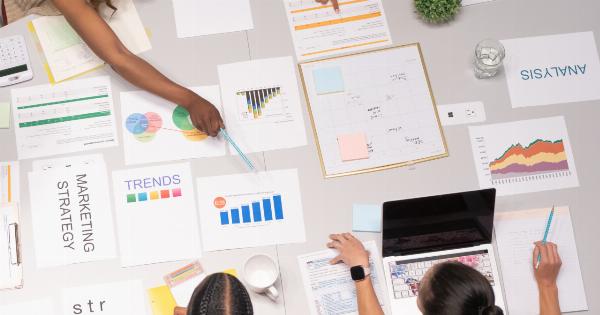Eye contact is a powerful nonverbal cue that can significantly impact our ability to communicate and connect with others. It plays a crucial role in forming and strengthening bonds between individuals.
Whether it is expressing empathy, building trust, or conveying genuine interest, eye contact has the power to enhance social interactions and deepen relationships.
The Science behind Eye Contact
Research has shown that eye contact has a direct influence on our brain and behavior.
When we engage in eye contact with another person, a complex network of neural circuits is activated, enabling us to understand the emotional state, intentions, and thoughts of the person we are interacting with.
One study conducted by researchers at the University of Barcelona found that eye contact triggers the activation of brain regions associated with social cognition and empathy.
This suggests that eye contact facilitates the understanding of others’ emotions and fosters a sense of connection.
Building Trust through Eye Contact
Eye contact is a powerful tool for building trust between individuals. When we look someone in the eye, it signals that we are present and engaged in the conversation.
It conveys a sense of transparency and authenticity, making the person feel seen and heard.
Studies have shown that individuals who maintain strong eye contact are perceived as more trustworthy and competent. This perception of trustworthiness can have a profound impact on the quality of our relationships, both personal and professional.
Enhancing Communication and Understanding
Effective communication goes beyond the words we use; it also involves nonverbal cues such as eye contact. When we maintain eye contact while conversing, it helps establish a connection and allows for better understanding.
By looking into someone’s eyes, we can detect subtle expressions and micro-expressions that convey emotions and thoughts.
This allows us to pick up on unspoken cues and have a deeper understanding of what the other person is trying to communicate.
Expressing Empathy and Emotional Support
Eye contact is particularly crucial when it comes to expressing empathy and emotional support. When we lock eyes with someone who is going through a challenging time, it signals that we are actively listening and validating their emotions.
Research has shown that eye contact can increase feelings of empathy and connectedness in both the giver and the receiver. It enhances our ability to understand and share the emotions of others, fostering a sense of compassion and support.
Overcoming Barriers with Eye Contact
Eye contact can also help overcome barriers in communication. In situations where there is a language barrier or cultural differences, maintaining eye contact can bridge these gaps and create a sense of mutual understanding.
Even in situations of conflict or disagreement, eye contact can play a crucial role in resolving issues. When we look someone in the eye during a conflict, it signals that we are willing to engage in a dialogue and seek a resolution.
It can help defuse tension and create a space for open communication.
The Role of Eye Contact in Bond Formation
Eye contact is an essential ingredient in the formation and strengthening of bonds between individuals. It serves as a nonverbal cue that we are present, attentive, and interested in the other person.
Whether it is a romantic relationship, a friendship, or a professional connection, eye contact plays a significant role in building and maintaining bonds.
Studies have shown that eye contact is particularly important in the early stages of a relationship. It helps create a sense of attraction, connection, and intimacy.
Eye contact can trigger the release of oxytocin, often referred to as the “love hormone,” which fosters feelings of trust and bonding.
Tips for Effective Eye Contact
While eye contact comes naturally to some individuals, others may struggle with maintaining it consistently. Here are a few tips to help you improve your eye contact skills and build stronger connections with others:.
1. Practice Active Listening
When engaged in a conversation, focus your attention on the other person, maintaining eye contact throughout. Actively listen to what they are saying and demonstrate interest through your gaze.
2. Be Mindful of Cultural Differences
Eye contact norms may vary across cultures. When interacting with individuals from different cultural backgrounds, be aware of these differences and adapt your eye contact accordingly.
3. Balance Intensity
While eye contact is essential, maintaining an intense gaze throughout the entire conversation can be unnerving. Find a balance by periodically breaking eye contact to avoid discomfort.
4. Build Confidence
If you struggle with maintaining eye contact, work on building your confidence. Practice in low-stakes situations and gradually challenge yourself to maintain eye contact for more extended periods.
5. Use Eye Contact in Conversations
Intentionally utilize eye contact as a way of building rapport in your conversations. Look into the eyes of the person you are speaking with, and observe the positive impact it has on the quality of the interaction.
The Power of Eye Contact in Summary
Eye contact is a powerful command that can strengthen your bond with others. It enhances communication, builds trust, and fosters a sense of connection.
By actively practicing and prioritizing eye contact, you can significantly improve your relationships and create meaningful connections.































